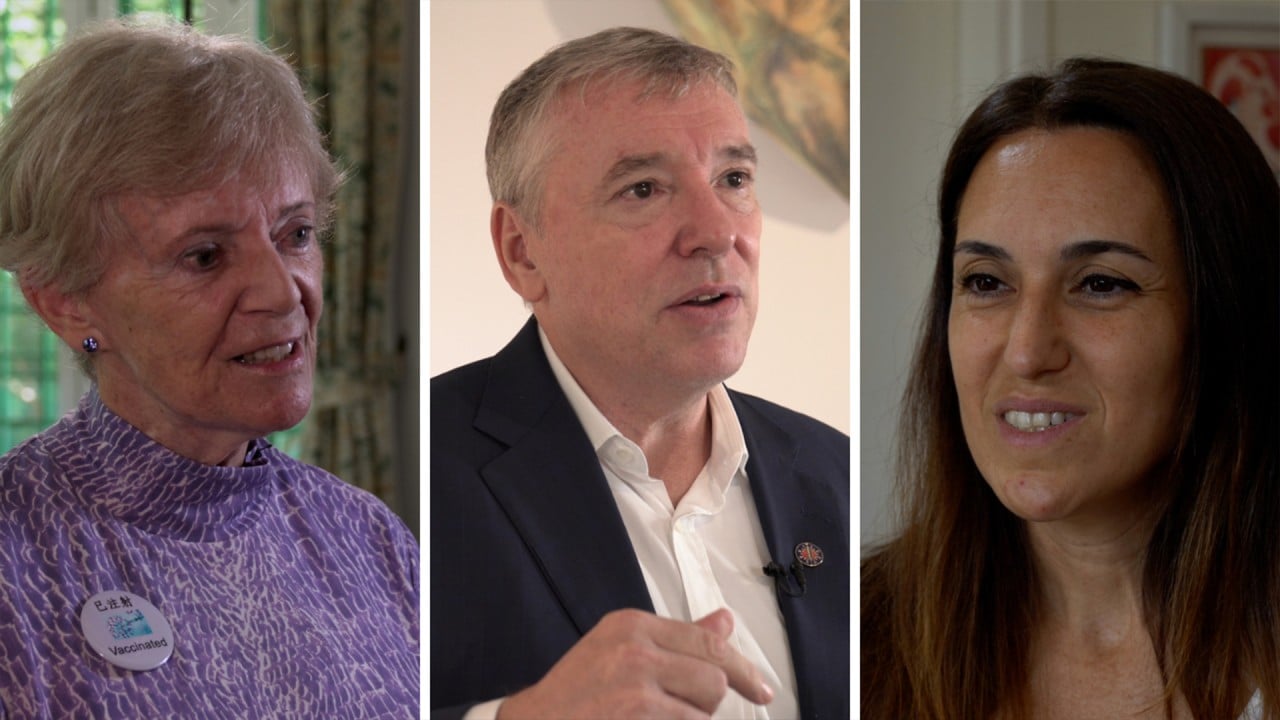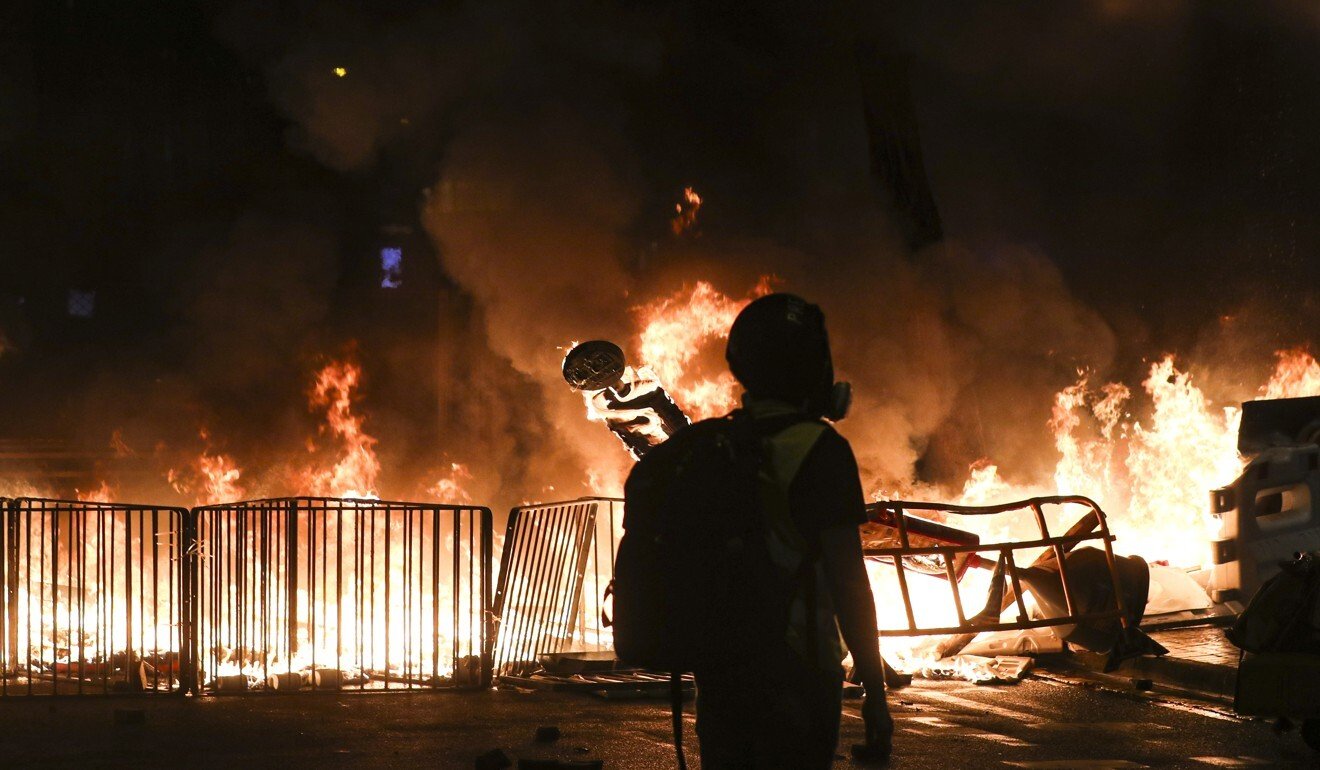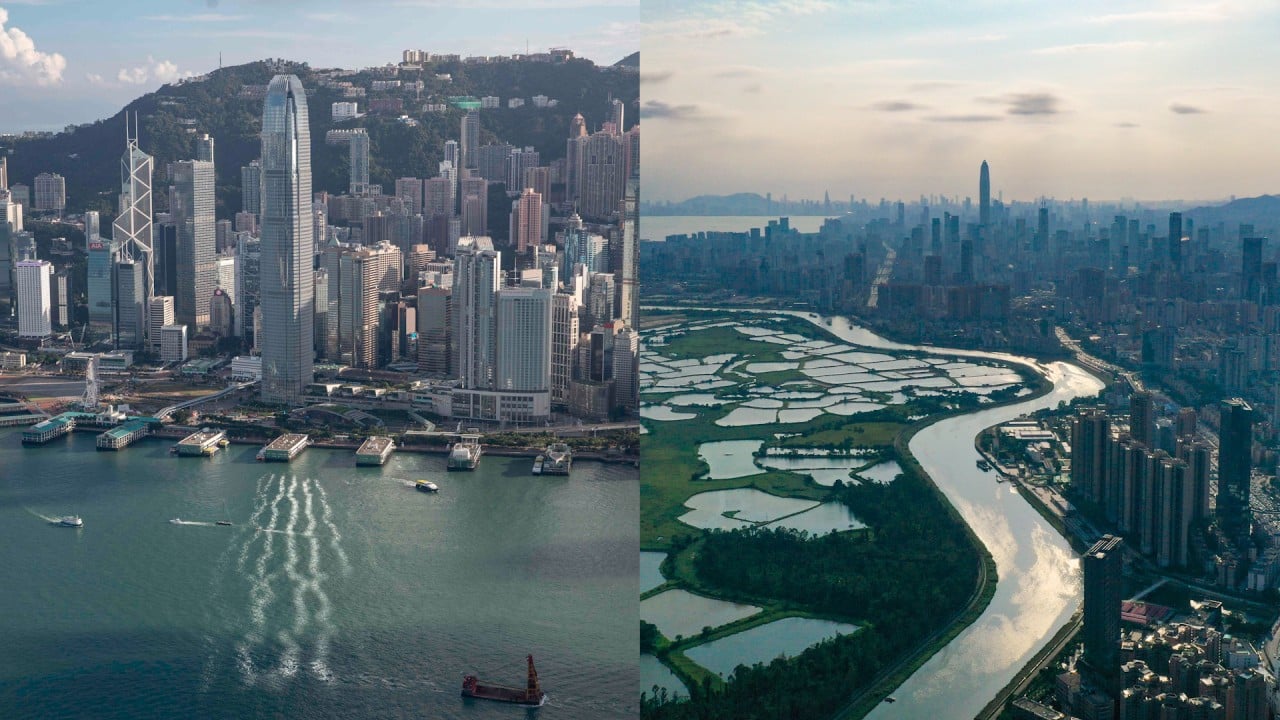
‘This is my home’: Hong Kong’s foreign residents say they have no plans to leave because of national security law
- Some long-time residents say security law helped restore order after chaos of 2019 social unrest
- Foreigners understand why some Hongkongers have left, but remain optimistic about city’s prospects
Judith Mackay arrived in Hong Kong in 1967 to find the city engulfed in pro-communist riots, and recalls the posters with large letters that screamed: “Imperialists, go home.”
A young doctor from Yorkshire, England, she worked in Hong Kong hospitals until she became an anti-tobacco lobbyist in 1984.
Mackay, 78, has seen changes in the city over the decades, including its 1997 return to Chinese rule, the 2003 Sars outbreak which claimed 299 lives, the social unrest of 2019 and through to the present day.
Married with two sons settled in Britain, she says from her spacious home in upscale Clear Water Bay: “I’m staying in Hong Kong, because it is my home.”

While there have been reports of Hongkongers leaving in the wake of the national security law imposed on the city by Beijing last year, many foreign residents are choosing to remain.
The Post interviewed 10 foreigners working in banking, architecture, the arts, the legal sector or retired, and almost all said the new law had not affected their daily lives or work. Five long-time residents believed the law helped restore stability after the chaos of the 2019 anti-government protests.
The law criminalises acts of secession, subversion, terrorism, and collusion with foreign forces. Since its introduction, 138 people have been arrested, including opposition figures and activists, and more than 200 district councillors have resigned.

‘A semblance of normality again’
Foreign residents make up almost 10 per cent of Hong Kong’s 7.5 million population, and some have been in the city for several decades, including retirees.
In the first half of this year, 9,361 non-permanent residents had their stay visas extended, compared to 19,323 for the whole of 2020. This number excludes foreign domestic workers, and others from the mainland.
Latest statistics from the Immigration Department show that Hong Kong issued 6, 471 work visas in the first six months of this year, compared with 14,617 in the whole of last year and 41, 289 in 2019.

07:46
‘Hong Kong is my home’: Expats explain why they’re staying put
Among those who welcomed the national security law for restoring calm in the city was prominent British citizen Nicholas Sallnow-Smith, 71, who has lived in Hong Kong for 28 years working in finance and property, serving on numerous boards.
He says he was concerned about the consequences of the 2019 protests on law and order, business and everyday life, and the new law reinforced his desire to stay.
“I don’t find it threatening. I think it was – in terms of the stability of Hong Kong – almost essential,” says Sallnow-Smith, a director on the board of the Wynn Macau casino resort who owns a flat on Hong Kong Island.

Mark Peaker, 57, who is British and runs a Chinese contemporary art gallery in Central and London, says he supported peaceful protests, but thought in 2019 that the city was “falling into absolute chaos”.
A resident of more than 20 years who rents a flat on Victoria Peak and owns two flats in Sai Ying Pun, he adds that with the law in place, there is “a semblance of normality again”.
Asked if they empathised with Hongkongers leaving in the wake of the law, Sallnow-Smith says they either had not been to Britain and did not know what it was like, or had a nostalgic view of the country.
He does not believe he will be better off in Britain, the United States, Canada or Australia, which he says are too focused on political correctness and he has friends who hesitate to speak openly even at private dinners for fear of offending.
Hong Kong’s elderly face uncertain future, less support as children emigrate
“I wouldn’t go and stand in front of government offices with placards, but at a dinner party here in Hong Kong, I have lots of friends who are on the other side of the political divide to me and we will have a healthy debate. We won’t think, we cannot say that,” he says.
Peaker thinks some of the Hongkongers who leave believing that the grass is greener on the other side may be in for a rude shock.
“You can sell your flat and buy a house in the United Kingdom, but becoming part of the community is a completely different story,” he says. “People in the communities of England are also struggling for employment.”
He adds that he knows of at least one Hong Kong family who left and already wants to return.

‘I was afraid to go to Central’
Richard Harris, 65, has lived in Hong Kong for 51 years, after arriving as a teenager when his father landed a job as a professor of politics at the University of Hong Kong. He has no plans to leave.
“Of course, if it changed dramatically overnight, one might think differently,” says the chief executive of Port Shelter Investment Management, who is married with two daughters.
“If suddenly one was cut off from the news, one might think differently, because we’re all used to having a free flow of information and you can’t do business without a free flow of information.”
He says he understands why some Hongkongers want to leave, and likens the uncertainty over the scope of the new security law to being in a swimming pool and being unable to feel the bottom.
“With people having their bank accounts frozen overnight, with people stopped at the airport, with people going to jail on what used to be fairly minor transgressions, it’s pretty uncertain,” he says.
Australian Marguerite Lee, a retired entrepreneur in her 70s who has lived in Hong Kong for 51 years, says she too understands why some Hongkongers have chosen to leave.

“They’re afraid. They do not know what the future’s going to be,” says the widow, whose late husband was a Eurasian doctor.
Referring to China’s decision to impose the national security law, she says the 2019 social unrest “poked the bear” and Beijing felt it had to quell the dissent in the streets of Hong Kong.
She recalls the day she found herself in the middle of a protest in Central in 2019, and being surrounded by a crowd suddenly, with police threatening to fire tear gas.
“After that I was afraid to go to Central … it was scary,” she says.
But she believes there are still opportunities in the city, and says her 46-year-old son, who works in finance, is moving back from London with his wife, a doctor. She has a younger daughter and two step-daughters.
Lee, who plans to remain in Hong Kong for the rest of her life, says: “I wouldn’t want to live anywhere else. I’m very comfortable here.”

05:25
Hong Kong's competitive edge questioned as Xi says Shenzhen is engine of China’s Greater Bay Area
‘Hong Kong still has much to offer’
Peaker turned his dream of running an art gallery into reality 10 years ago, and his current show in Central features works priced between HK$500,000 and around a million dollars.
He says he has not changed the way he expresses himself publicly, and still believes he can challenge and criticise the government objectively, although he is not about to test the “red lines” under the current political climate.
“There is more to Hong Kong than the national security law. We need to move beyond that,” he says.
He believes Hong Kong still has much to offer, especially to young people, and feels the government has failed get across to them that opportunities abound across the border.
“There’re a billion people out there, all wanting to do business. Look at Shenzhen right now, it’s dwarfing Hong Kong because they’re not focusing on politics day in and day out,” he says.
However, he adds there are problems such as housing, poverty and a lack of trust between the government and the people, which need to be addressed.

Mackay’s work in tobacco control is a key reason she sees her future in Hong Kong, which she uses as her base to work with governments across Asia.
Describing her work as “apolitical”, she says the national security law has not affected her life or her work. “I don’t feel I’m likely to break it. I feel I’m safe and I’m secure here.” she adds.
However, she says she understands the anxiety among some Hongkongers, including disaffected young people.
“What will it mean for the whole of society? I don’t know,” she says. “Is there going to be stability and things just settle into place, or is there going to be more disquiet?”
She believes Hong Kong has weathered many storms and will continue to do so, but also feels it is inevitable that it will become a more Chinese city.
“This idea that somehow Hong Kong will stay the same for 50 years and beyond, and China will gradually become more open and more like Hong Kong is probably not going to happen,” she says. “That is a new reality we have to get to grips with.”
Homesick Malaysians in Hong Kong bond over dragon boat team
Sallnow-Smith, who is married to a Hongkonger, argues that the city is not the same as mainland cities and will retain its unique elements, such as the rule of law.
He expects a change in the city’s expatriate community, with mainlanders gradually replacing Westerners, and remains optimistic about the city’s prospects.
“Politically, it seems to me, there’s no upside for the mainland in having Hong Kong look like a failure,” he says.
Harris says he expects the dire shortage of housing to remain an issue, but expects the city to remain economically successful and remain a magnet for mainland money.
“It’s still the Monaco to France, with relatively low taxes, relatively free wheeling. It will be a successful Chinese city, not a successful global city,” he says.
Among more recent arrivals, some younger expatriates told the Post they did not want to comment openly on the national security law, fearing that doing so might affect their jobs.
Australian Chincia Harvey, 40, a freelance photographer, says she and her husband had lived in Hong Kong for four years before going back to Sydney.

When his job in property offered them an opportunity to return to Hong Kong in 2010, they said yes “in a heartbeat”.
“In terms of opportunity and business culture, it was such a thriving, wonderful place to work,” she says.
Harvey, who has two children, says she has noticed changes in the city over the past year.
“We’re definitely conscious of it,” she says. “We’re watching and waiting and seeing … what kind of effect this may have on anyone’s lives.”
American Peter Thomas, 32, who works in the legal industry, arrived in Hong Kong with his wife last year from New York on a two-year contract.
Their daughter was born in the city seven months ago.
“From the family side of things, Hong Kong is a great place to live,” he says. “But obviously there is underlying political tension, and it gives some people pause.”

